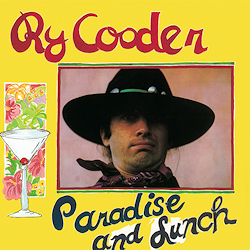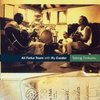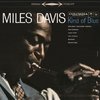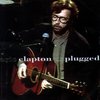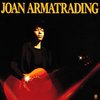AAA 100% Analogue This LP was Remastered using Pure Analogue Components Only from the Master Tapes through to the Cutting Head
Speakers Corner / Reprise MS 2179 - 180 Gram Virgin Vinyl - AAA 100% Analogue
Limited Edition - Reprise MS 2179
Mastered by Kevin Gray at Cohearent Audio - Pressed at Pallas Germany
Speakers Corner 30 Years pure Analogue
The Speakers Corner reissue of Paradise and Lunch unearths more weight and heft on the traditional "Tamp 'Em up Solid" than I hear on the well-worn 1976 reissue Reprise MS 2179 in my collection. Kevin Gray’s remastering imbues Cooder’s back-of-the-throat singing style with some throat and chest resonance that’s lost on the version I own. Cooder’s various steel-string guitars and mandolins now resonate more like the wooden acoustic instruments they are. Additionally, the bass lines on "I’m a Fool for a Cigarette/Feeling Good" are richer, and the background strings are silkier and smoother than what I hear on the ‘76 pressing. Because the background vocals and string accompaniment are fully fleshed out, the result is a more musically satisfying rendition of this addictive song. On the New Orleans-flavored "Jesus Is On the Mainline," the harmonizing horns have a pleasingly burnished quality, and I hear a silvery sparkle as Cooder’s glass bottleneck slides across his instrument’s strings that makes my reissue sound a tad muddy by comparison. As with every Speakers Corner reissue I’ve heard, this flat Pallas pressing provides velvety-black, ultra-quiet backgrounds that are, sadly, not typical of many new vinyl releases.Sound 4.5/5 Theaudiobeat
A classic 1974 roots album gets a well-deserved analog update! Speakers Corner has re-mastered this classic album to 180-gram vinyl and it is terrific Speakers Corner has done a superb job in re-mastering Paradise And Lunch to audiophile vinyl. The subtlety of analog mixing is captured with the right amount of vibrancy. The guitars and mandolin are crisp, warm and devoid of unnecessarily augmented studio effects. Hines’ piano sounds like a vintage recording. The percussion and bass are dialed back. Horns blend in effortlessly without any shrillness. Like any great recording, it gets better with each additional play Sound 5/5 Audiophile Audition
Owners of a sensitively dissolving hi-fi system or a high-quality drive will appreciate the clean and precise sound record. Also the warm and analog sound are clear plus points besides the very cleanly pressed 180g vinyl. - 5/5 Vinylfan
Sounds Gorgeous Sound 5/5 HIFI Choice
A good 20 years have passed since a band with ancient musicians from Cuba – the Buena Vista Social Club – took the world by storm. Behind the project, in the wings yet right in the midst of this unheard-of music, was Ry Cooder, who regarded this encounter as the greatest musical event of his entire life. The bottleneck guitar hero had always been very interested in the music from the other Americas ever since the solo albums he made in his early years, in which he told the story of the American folk and blues in a multitude of styles.
The LP "Paradise And Lunch" is no exception and begins with gospel-like grooves that smell of native soil. The faint smell of a wooden church from pioneering days wafts out of the processional antiphonal song "Jesus On The Mainline" and a healthy 12-bar blues paints a picture of what silent witnesses could tell if they could ("If Walls Could Talk"). Cooder and his sidemen felt themselves perfectly at home when adventuring further afield and this is testified to in the laid-back calypso rhythm of "It’s All Over Now" and the clip-clop of "Mexican Divorce".
This wonderful album is highly recommended for each and every number, but if you want a tip for a very special track, then just listen to the ragtime piano rolls in Bo Diddley’s "Ditty Wah Ditty".
Ry Cooder understands that a great song is a great song, whether it was written before the Depression or last week. Still, at the same time he isn't afraid to explore new avenues and possibilities for the material. Like his three previous records, Paradise and Lunch is filled with treasures which become part of a world where eras and styles converge without ever sounding forced or contrived. One may think that an album that contains a traditional railroad song, tunes by assorted blues greats, and a Negro spiritual alongside selections by the likes of Bobby Womack, Burt Bacharach, and Little Milton may lack cohesiveness or merely come across as a history lesson, but to Cooder this music is all part of the same fabric and is as relevant and accessible as anything else that may be happening at the time.
No matter when it was written or how it may have been done in the past, the tracks, led by Cooder's brilliant guitar, are taken to new territory where they can coexist. It's as if Washington Phillips' "Tattler" could have shared a place on the charts with Womack's "It's All Over Now" or Little Milton's "If Walls Could Talk." That he's successful on these, as well as the Salvation Army march of "Jesus on the Mainline" or the funky, gospel feel of Blind Willie McTell's "Married Man's a Fool," is not only a credit to Cooder's talent and ingenuity as an arranger and bandleader, but also to the songs themselves. The album closes with its most stripped-down track, an acoustic guitar and piano duet with jazz legend Earl "Fatha" Hines on the Blind Blake classic "Ditty Wah Ditty." Here both musicians are given plenty of room to showcase their instrumental prowess, and the results are nothing short of stunning. Eclectic, intelligent, and thoroughly entertaining, Paradise and Lunch remains Ry Cooder's masterpiece.
Recording: 1974 at the Warner Brothers Studios in North Hollywood and Burbank (USA), by Lee Herschberg
Production: Lenny Waronker & Russ Titelman
Musicians:
Ry Cooder, guitar, mandolin, bass, vocals
Ronnie Barron, piano, organ
Earl Hines, piano (B4)
Plas Johnson, alto saxophone
Oscar Brashear, cornet
Red Callender, bass
John Duke, bass
Russ Titelman, electric bass
Chris Ethridge, electric bass
Milt Hollad, drums, percussion
Jim Keltner, drums
Selections:
Side A:
1. Tamp 'em Up Solid
2. tattler
3. Married Man's A Fool
4. Jesus On The Mainline
5. It's All Over Now
Side B:
1. I'm A Fool For A Cigarette / Feelin' Good
2. If Walls Could Talk
3. Mexican Divorce
4. Ditty Wa Ditty
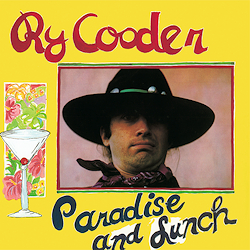
AAA 100% Analogue This Speakers Corner LP was remastered using pure analogue components only, from the master tapes through to the cutting head 25 Years pure Analogue
MADE FROM THE ORIGINAL MASTER TAPES
AAA 100% ANALOGUE - PURE ANALOGUE AUDIOPHILE MASTERING
We use the Original Tapes and work with only the Best Mastering Studios Worldwide
180 GRAM VIRGIN VINYL PLATED & PRESSED AT PALLAS GERMANY
Faithful Reproduction of the Original Artwork and Labels
LIMITED EDITION Released in Limited Quantities
All Licences and Mechanical Rights Paid
Are your records completely analogue?
Yes! This we guarantee!
As a matter of principle, only analogue masters are used, and the necessary cutting delay is also analogue. All our cutting engineers use only Neumann cutting consoles, and these too are analogue. The only exception is where a recording has been made – either partly or entirely – using digital technology, but we do not have such items in our catalogue at the present time
Are your records cut from the original masters?
In our re-releases it is our aim to faithfully reproduce the original intentions of the musicians and recording engineers which, however, could not be realised at the time due to technical limitations. Faithfulness to the original is our top priority, not the interpretation of the original: there is no such thing as a “Speakers Corner Sound”. Naturally, the best results are obtained when the original master is used. Therefore we always try to locate these and use them for cutting. Should this not be possible, – because the original tape is defective or has disappeared, for example – we do accept a first-generation copy. But this remains an absolute exception for us.
Who cuts the records?
In order to obtain the most faithful reproduction of the original, we have the lacquers cut on the spot, by engineers who, on the whole, have been dealing with such tapes for many years. Some are even cut by the very same engineer who cut the original lacquers of the first release. Over the years the following engineers have been and still are working for us: Tony Hawkins, Willem Makkee, Kevin Gray, Maarten de Boer, Scott Hull, and Ray Staff, to name but a few.
At the beginning of the ‘90s, in the early days of audiophile vinyl re-releases, the reissue policy was fairly straightforward. Companies such as DCC Compact Classics, Mobile Fidelity, Classic Records and others, including of course Speakers Corner, all maintained a mutual, unwritten code of ethics: we would manufacture records sourced only from analogue tapes.
Vinyl’s newfound popularity has led many other companies to jump on the bandwagon in the hope of securing a corner of the market. Very often they are not so ethical and use every imaginable source from which to master: CDs, LPs, digital files and even MP3s.
Even some who do use an analogue tape source employ a digital delay line, a misguided ’80s and ‘90s digital technology that replaces the analogue preview head originally used to “tell” the cutter head in advance what was about to happen musically, so it could adjust the groove “pitch” (the distance between the grooves) to make room for wide dynamic swings and large low frequency excursions. Over time analogue preview heads became more rare and thus expensive.
So while the low bit rate (less resolution than a 16 bit CD) digital delay line is less expensive and easier to use than an analogue “preview head”, its use, ironically, results in lacquers cut from the low bit rate digital signal instead of from the analogue source!
Speakers Corner wishes to make clear that it produces lacquers using only original master tapes and an entirely analogue cutting system. New metal stampers used to press records are produced from that lacquer. The only exceptions are when existing metal parts are superior to new ones that might be cut, which includes our release of “Elvis is Back”, which was cut by Stan Ricker or several titles from our Philips Classics series, where were cut in the 1990s using original master tapes by Willem Makkee at the Emil Berliner Studios. In those cases we used only the original “mother” to produce new stampers.
In addition, we admit to having one digital recording in our catalogue: Alan Parsons’ “Eye in the Sky”, which was recorded digitally but mixed to analogue tape that we used to cut lacquers.
In closing, we want to insure our loyal customers that, with but a few exceptions as noted, our releases are “AAA”— analogue tape, an all analogue cutting system, and newly cut lacquers.
60 Years Pallas
Audiophile Vinyl - Made in Germany For over 60 years the family business in the third generation of the special personal service and quality "Made by Pallas" is known worldwide. Our custom PVC formulation produces consistently high pressing quality with the lowest surface noise in the industry. Our PVC complies with 2015 European environmental standards and does not contain toxic materials such as Lead, Cadmium or Toluene. Our vinyl is both audiophile and eco-grade!
